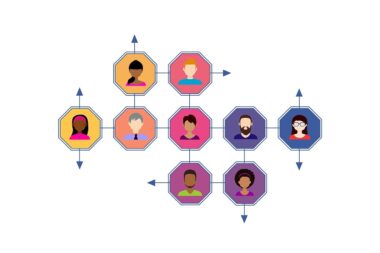AI-Enhanced Social CRM: A New Era of Customer Relationship Building
In today’s business landscape, the integration of artificial intelligence with social customer relationship management (CRM) tools is transforming how companies build and maintain relationships with their customers. AI enhances the ability of businesses to analyze vast amounts of data gathered from social media channels. Customers are more engaged than ever, sharing their preferences, experiences, and concerns, thereby generating a wealth of insights. Social CRM, combined with AI analytics, enables companies to respond proactively to customer feedback. It allows for the identification of trends that may signal shifts in customer behavior, needs, or preferences. By leveraging natural language processing (NLP) and sentiment analysis, organizations can gain deeper insights into customer sentiments and opinions. This data-driven approach improves the overall customer experience as companies tailor their services to meet evolving expectations. AI-driven insights in Social CRM not only improve service but also help in cross-selling and up-selling products effectively, thus driving revenue growth. In the end, AI’s implementation within social CRM strategies represents a paradigm shift in how organizations view customer relationships.
The core functionalities that AI brings to social CRM revolve around personalization and automation. With AI, companies can analyze user behavior patterns, predicting what products or services individual customers may need. This predictive analysis allows businesses to provide tailored recommendations and content to each user based on their preferences. Moreover, through automation, repetitive tasks such as responding to queries are handled efficiently, allowing customer service representatives to focus on complex issues that require a human touch. AI-driven chatbots, which are becoming increasingly sophisticated, can handle numerous inquiries simultaneously, providing immediate responses to customers. These bots can gather and relay information regarding customer interactions across platforms, creating a seamless experience. Additionally, advanced analytics tools empower organizations to segment customers more effectively based on their interactions and behaviors. This segmentation fuels targeted marketing campaigns that yield higher conversion rates. In sum, personalizing the customer journey through AI-infused social CRM fosters loyalty and encourages long-term relationships between businesses and customers, enhancing overall satisfaction. The use of data empowers businesses to stay relevant in today’s competitive marketplace.
The Role of Data Analytics
The role of data analytics in AI-enhanced social CRM cannot be overstated. It is the foundation upon which effective customer relationship strategies are built. Organizations capture and analyze data from various social media platforms, gathering insights on customer preferences, demographic information, and engagement levels. This data informs decision-making processes and marketing strategies. Advanced algorithms sift through this data, revealing hidden patterns that would otherwise go unnoticed. Consequently, organizations can understand customer pain points accurately and prioritize solutions that meet their needs. Furthermore, this analytical approach enables businesses to assess the impact of their campaigns, making it easier to pivot when necessary. With the use of machine learning, these systems improve over time, ensuring that the insights generated become even more precise. Predictive analytics, supported by historical data, assists businesses in forecasting customer behavior, aiding in inventory management and resource allocation. Overall, data analytics enhances the strategic capabilities of social CRM, allowing organizations to create more effective roadmaps in their efforts to connect with customers meaningfully.
Customer engagement is enhanced significantly through AI-enriched social CRM technology. By utilizing AI algorithms, businesses can identify and engage customers at critical touchpoints during their purchasing journey. For instance, social listening tools allow brands to monitor conversations around their products or services in real-time. By responding promptly to both positive feedback and complaints, companies can foster a sense of community around their brand. Furthermore, AI chatbots, integrated with CRM systems, assist customers 24/7, ensuring that help is always accessible. This immediate attention often leads to increased customer retention, as clients appreciate prompt communication. AI tools can also automate follow-up communications, ensuring no potential lead goes unnoticed. Personalized email campaigns, powered by customer data analytics, can be sent to segmented groups, increasing the likelihood of engagement. As businesses cultivate relationships in this manner, they not only aim for immediate sales but also strive for long-term loyalty. Emphasizing a customer-first strategy encourages repeat business and strong advocacy, where satisfied customers actively promote the brand to others. Hence, strategic engagement through AI technology reshapes the customer-business interaction.
Benefits of AI in Social CRM
The benefits of integrating AI into social CRM strategies are substantial and multifaceted. First, the enhanced efficiency that AI brings allows businesses to process information faster and more accurately than traditional methods. This efficiency translates into improved operational performance and reduced costs associated with customer service. Additionally, AI promotes a heightened level of personalization, allowing companies to connect with customers as individuals rather than mere numbers. Longer customer interaction times, resulting from personalized engagements, often lead to increased sales opportunities. Businesses that implement AI to analyze customer interactions can tailor responses and marketing efforts to align with customer preferences. The ability to automate tedious and repetitive tasks frees up employees’ time for more meaningful and strategic initiatives. Moreover, using AI enables the creation of more informed customer engagement strategies, derived from predictive analytics. Through deep insights into consumer behavior, companies can develop products that meet specific needs, ultimately enhancing satisfaction and loyalty. In conclusion, leveraging AI in social CRM systems provides a robust framework for modern customer engagement, delivering results that drive growth and profitability.
Challenges exist as organizations embark on the journey of integrating AI into their social CRM systems. One significant challenge involves data privacy and security. With increasing scrutiny over data protection regulations, companies must ensure compliance with laws like GDPR. Customers are more aware of their data rights and expect transparency regarding how their data is used. This necessitates robust data governance strategies and security measures to uphold trust between businesses and customers. Another challenge lies in the implementation of AI technologies; it requires substantial investment and resources to deploy effectively. Companies must equip their staff with training to harness AI tools effectively, requiring commitment at all levels. Furthermore, smaller businesses may struggle to adopt sophisticated AI systems due to budget constraints. Acquiring the right talent to manage and interpret AI analytics can also pose difficulties. Thus, organizations need to strike a balance between adopting new technologies and maintaining their core service values. Overcoming these challenges is crucial to ensuring that AI-enhanced social CRM systems deliver their full potential.
Future Trends in AI and Social CRM
Looking ahead, the future of AI in social CRM appears promising and dynamic. Companies will likely see further advancements in machine learning algorithms, enhancing their ability to predict customer behavior with pinpoint accuracy. As AI evolves, businesses will adopt even more sophisticated tools, enabling granular analysis of individual customer interactions. The expansion of voice recognition systems and chatbots is anticipated, allowing brands to provide seamless customer experiences across diverse channels. Integration with augmented reality (AR) and virtual reality (VR) may change how customers interact with brands visually. Organizations could offer immersive experiences, showcasing products through virtual environments that facilitate unique customer engagement. Moreover, the emphasis on ethical AI practices is expected to grow as consumers demand fairness and transparency in automated decision-making. Adopting these principles is vital for fostering genuine connections and establishing trust. As real-time data analytics become increasingly important, social CRM tools will evolve to provide insights instantaneously. Continuous innovation will dictate the trajectory of AI application in social CRM, ultimately redefining how businesses connect with their customers in the digital age.
In conclusion, the integration of AI into social CRM is reshaping the customer relationship landscape, driving profound changes in how businesses interact with clients. AI empowers brands to gather insights from social interactions, leading to highly personalized customer experiences. The benefits of this technology are vast and varied, from enhanced efficiency to improved customer satisfaction. As organizations become more data-driven, they are better equipped to understand and meet the needs of their clientele. Despite challenges regarding data privacy and implementation costs, the advantages of utilizing AI in social CRM substantially outweigh these obstacles. The future will continue to bring innovations, fostering new ways of engaging customers meaningfully. Businesses that embrace these changes will position themselves strongly within their markets, ready to meet evolving customer expectations. The symbiotic relationship between AI and social CRM is just beginning, and forward-thinking companies will harness this potential to foster lasting relationships. As AI continues to advance, the power of social CRM will undoubtedly expand, allowing businesses to remain competitive and relevant in an increasingly digital world.





